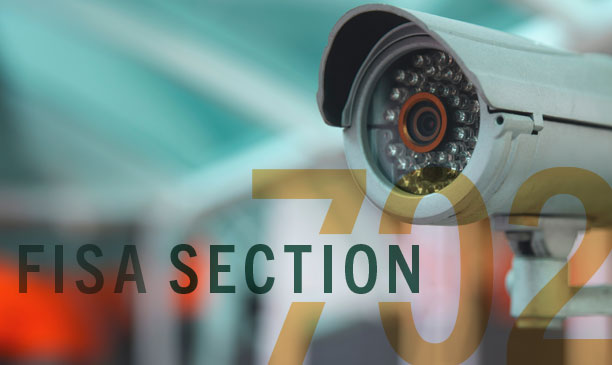Today’s Headlines and Commentary
Lawfare’s daily roundup of national security news and opinion.

Subscribe to receive this newsletter directly to your inbox.
White House records turned over to the House select committee investigating the Jan. 6 attack on the U.S. Capitol reveal a seven-hour gap in former President Trump’s phone logs, reports the Hill. Trump’s communications records show a gap from 11:17 a.m. to 6:54 p.m. on the day of the attack on the Capitol despite claims that Trump conducted several phone calls during that seven hour period. The select committee is reportedly planning to investigate whether Trump used the phones of his aides, disposable phones or other back channels to communicate with individuals outside of the White House on Jan. 6. In a statement, Trump said of the accusations “I have no idea what a burner phone is, to the best of my knowledge I have never even heard the term.”
The House select committee investigating the Jan. 6 attack on the U.S. Capitol unanimously voted to hold two former top Trump aides in criminal contempt of Congress, writes the Washington Post. Former Trump trade and manufacturing director Peter Navarro and former deputy chief of staff Dan Scavino, Jr. have reportedly refused to comply with the select committee’s subpoenas and document requests for some time, citing executive privilege. Following the select committee’s vote, the House of Representatives will vote on whether to recommend Navarro and Scavino for prosecution by the Justice Department.
Humanitarian evacuation corridors meant for refugees in and around the besieged city of Mariupol, Ukraine have come under the control of Russian forces, according to CNN. After weeks of bombardment that resulted in the deaths of an unknown number of civilians and a humanitarian crisis, Mariupol’s Mayor Vadym Boichenko said in a live television interview “Not everything is in our power. Unfortunately, we are in the hands of the occupiers today." The humanitarian corridors were established under agreements between Ukrainian and Russian negotiators, however for weeks Russian forces have not abided by ceasefire laws around the corridors which make it nearly impossible for the corridors to be utilized safely and efficiently. Boichenko said of the difficulties, “The Russian Federation has been playing with us since day one."
Russian Deputy Defense Minister Alexander Fomin reported that Moscow will take steps to “dramatically” reduce its military activities in Kyiv and Chernihiv, Ukraine, reports Financial Times. Fomin’s announcement came in a video shared by Russian-state media. The decision to scale-back Russian military activities near the capital city is reportedly because Russia is aiming to “increase mutual trust” to “create the necessary conditions for future [peace] negotiations”between Russia and Ukraine.
The internet service provider used by the Ukrainian military suffered a massive cyber attack on Monday, writes the Wall Street Journal. Ukrtelecom PJSC's ability to connect to the internet was compromised by attacks and the provider was forced completely offline within five hours since the attack began at 5 a.m. on Monday. At the beginning of the attack when their connectivity was weaning, Ukrtelecom began limiting its service to business and consumer customers so that it could preserve its ability to provide internet services to military customers for as long as possible. Experts tracking cyberattacks claim that the attack on Ukrtelecom was one of the most harmful attacks since the Russian invasion of Ukraine began on Feb. 24. The company has since restored its internet connectivity and continues to provide services to its military and civilian customers.
President Biden proposed a $5.8 trillion budget that includes provisions to increase funding for the military and police departments, according to the New York Times. In the request for Congress for fiscal year 2023, Biden proposed a 7 percent increase in domestic spending for projects such as affordable housing and manufacturing investments to address supply chain issues. Biden also asked for $773 billion in military spending— which is a 10 percent increase from last year's budget—to address threats such as Russia’s invasion of Ukraine, China, North Korea and Iran. Biden’s budget request signals the president’s focus on economic and security concerns. Biden said of the budget, “Budgets are statements of values, and the budget I am releasing today sends a clear message that we value fiscal responsibility, safety and security at home and around the world, and the investments needed to continue our equitable growth and build a better America.”
The BA.2 sub-variant of the Omicron variant is now the most dominant strain of coronavirus worldwide, reports Reuters. According to the World Health Organization, BA.2 currently represents 86 percent of all sequenced cases. BA. 2 is reportedly more transmissible than Omicron variants BA.1 and BA.11, but is not more likely to cause severe disease.
The Food and Drug Administration (FDA) has authorized a second booster shot of the coronavirus vaccine for adults age 50 or older, writes USA Today. The FDA said that individuals 50 or older are eligible for a second booster dose if it has been at least four months from their first booster dose. FDA officials report that, “Based on an analysis of emerging data, a second booster dose of either the Pfizer-BioNTech or Moderna COVID-19 vaccine could help increase protection levels for these higher-risk individuals.”
ICYMI: Yesterday on Lawfare
Jen Patja Howell shared an episode of the Lawfare Podcast in which Benjamin Wittes sat down with Polina Ivanova—a Moscow correspondent for the Financial Times—to talk through the Russian military press conference that took place on last week in which the Ministry of Defense seemed to walk back Russia's war aims in the Ukraine conflict.
Elena Chachko explained why it is time for governments and platforms to build better long-term institutions and procedures for integrating tech giants into security and geopolitical policymaking.
Katherine Pompilio announced next week’s Lawfare Live which will feature a conversation between Wittes and Senior Editor Roger Parloff about the ongoing prosecutions of Capitol riot defendants.
Quinta Jurecic and Andrew Kent questioned the lack of reforms of executive power in the post-Trump era.
Natalie K. Orpett published a tribute to former U.S. Secretary of State Madeleine Albright.
Robert Chesney and Steve Vladeck shared an episode of the National Security Law Podcast in which they sat down with Assistant Attorney General Matt Olsen to talk about the Justice Department’s national security division.
Email the Roundup Team noteworthy law and security-related articles to include, and follow us on Twitter and Facebook for additional commentary on these issues. Sign up to receive Lawfare in your inbox. Check out relevant job openings on our Job Board.





